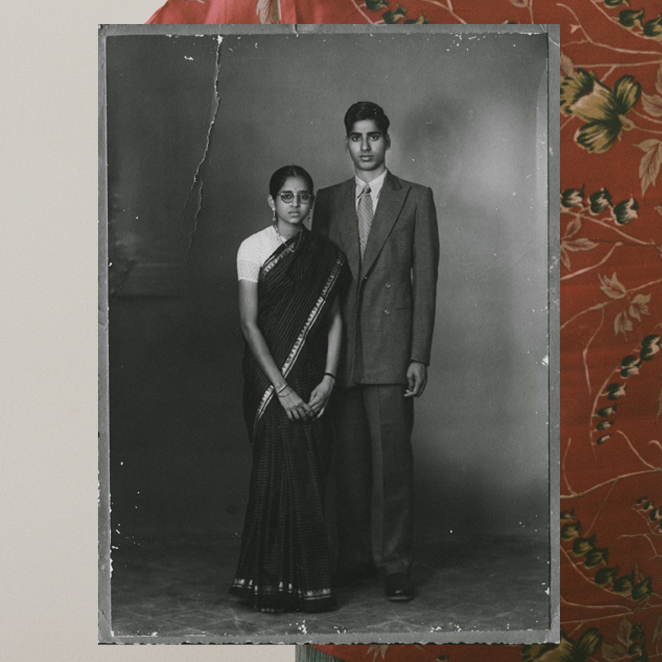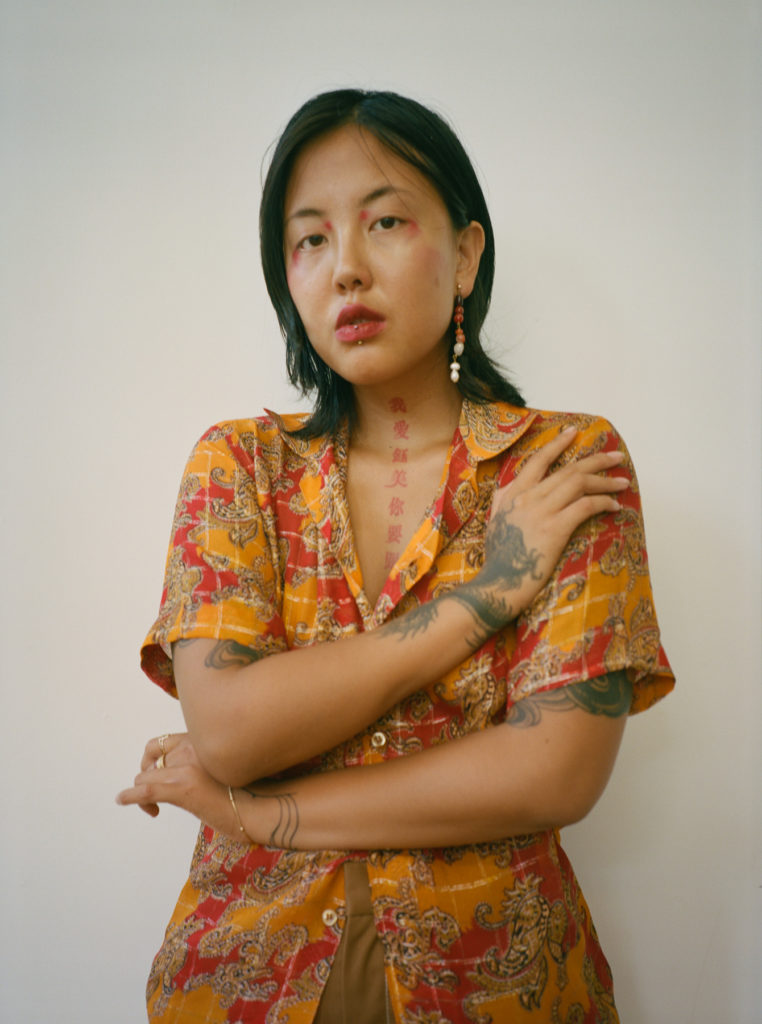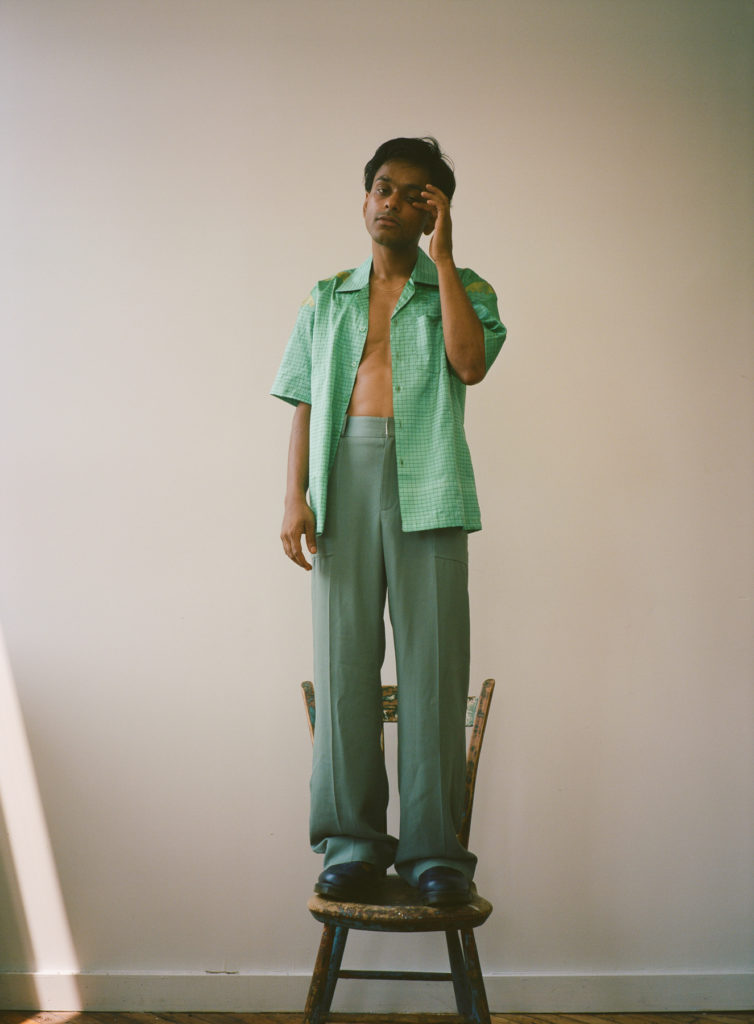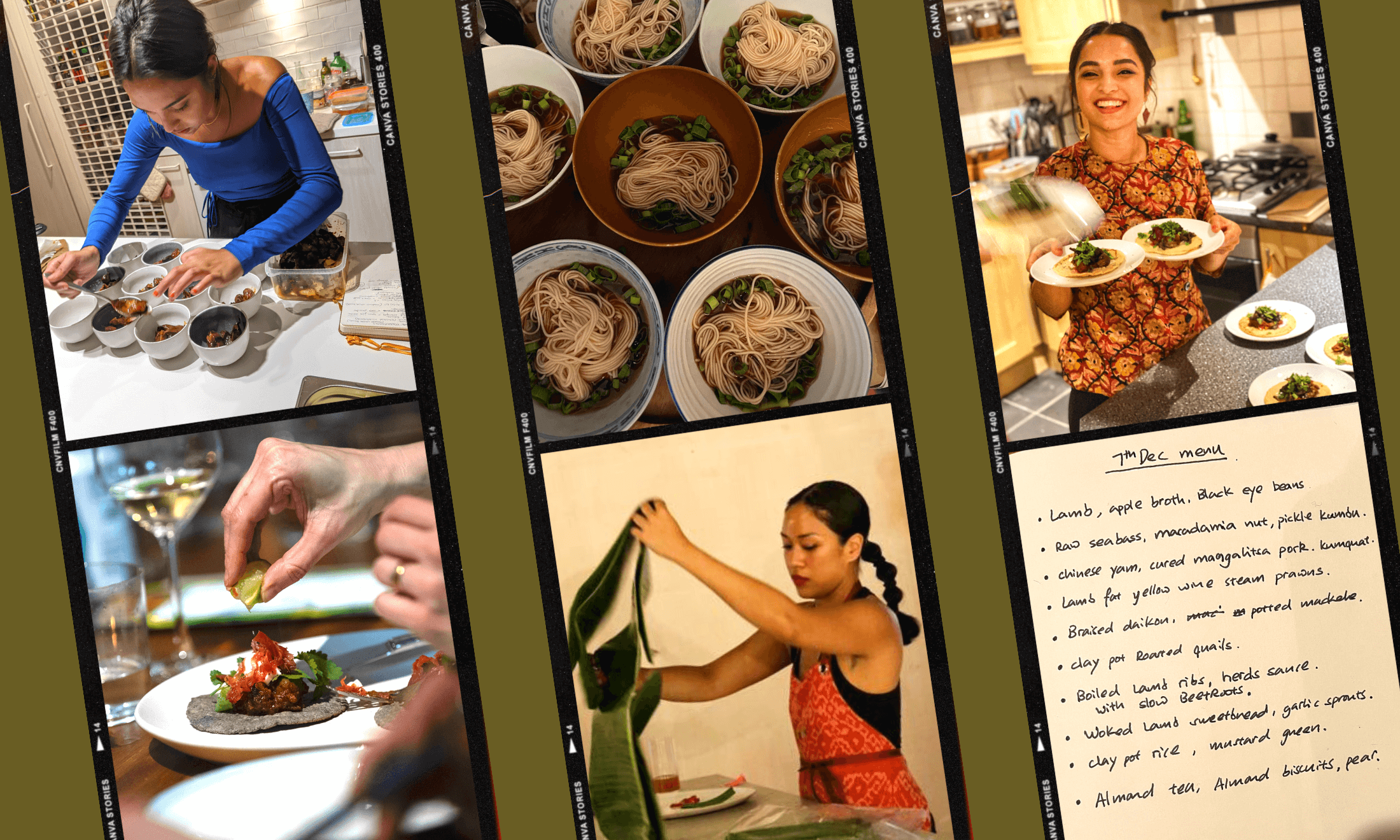
SAMAVAI is transforming cherished family saris into beautiful, sustainable shirts
Eni Subair
25 Jan 2020
Images by Shriya Samavai Manian & Harshvardhan Shah
There aren’t many of us who could forever cement our family history by literally weaving years of celebratory achievements into garments that simultaneously spark conversation and champion inclusivity. Yet innovative designer Shriya Samavai Manian has done just that. Birthed from notions of family, sustainability and historical ties, SAMAVAI quickly gained momentum last summer. The concept – which they note began through utilising their Mother’s saris – merges authentic, rich material which is then applied to button down, boxy shirts. “I was drawn to what my mother and grandmother were wearing and other female relatives. The saris and other types of clothes that we wear are so colourful… it’s really quite magical, anything goes. My mother is the opposite of a hoarder, she’s had saris for 40 or 50 years and I thought it would be cool to use that fabric for something instead of it simply sitting at home.”
While many of us may have admired the intricate detailing and vivid prints adorned throughout our parents’ wardrobes, permanently solidifying their archive of sentimental pieces wouldn’t necessarily spring to mind. However, their venture into the fashion sphere was perhaps a natural one. Shriya, who is of Indian descent, moved to New York in 2011 to study at Columbia University which set the precedent for their path as they were privy to a more multicultural community – something, they note, was missing from their childhood growing up in mid-west America. “I think being a first generation child to immigrants, growing up there was this tension of, ‘Am I American or am I Indian?’ and ‘How can I find some sort of consensus between these two identities?’”.

Shriya’s grandparents
Image courtesy of Shriya Samavai Manian
The creative, who has since been immersed in the fashion industry for the past five years, embarked on a trip to Chennai in the state of Tamil Nadu last year with their mother, taking a sari with them. This would soon spark the very first iteration of their collection, they explain. “My cousin was getting married in India last May and my mum and I were going to the wedding, so I asked my mum if she had any saris I could experiment with. Following that, I took it to India with a sample button down shirt.” Shriya liaised with established menswear tailors from their grandmother’s village and at the end of the trip, they have a fond memory of collecting the sample. “The shirts looked amazing. They had done all the button matching and they did pattern matching on the pocket so it looked like it was seamless with the shirt.” Seeing the latest samples never gets old. “My first sale felt really validating and like I was doing something right. I was excited when family members or co-workers said they would wear my pieces. Now, it feels like Christmas or my birthday every time I see a new batch of shirts!”
“I wanted to start with something that was not specific to any gender or body type”
Shriya Samavai Manian
Now renowned for their boxy shirts, deviating away from their signature style and venturing into other garments has crossed their mind, but for Shriya it has been a natural decision so far. “I wanted to start with something that was not specific to any gender or body type,” they say. Without compromising the gender-neutral element of the collection, I wonder if they would perhaps consider spawning other silhouettes? They respond, “A lot of people have asked whether I would make other Indian garments out of saris, which I could and have done before, but I think it’s a little more fun to be making Western clothes out of something that is so Eastern. Particularly from an item that has existed for hundreds, if not thousands of years.”

Image by Harshvardhan Shah
Tackling sustainability and reducing carbon emissions has been a focal point in the media recently. In March 2019, General Assembly President Maria Espinosa warned we would have 11 years to prevent irreversible global damage. The fashion industry has notably contributed to the current dismal state of the planet, as fashion weeks are still very much at the helm of the industry. Taking heed of the situation, just this month, long-time committed environmentalist Stella McCartney formed an alliance with Joker star Joaquin Phoenix, who pledged to wear the same suit throughout award season, while French designer Jacquemus’ coed menswear fall 2020 show was rife with linen pieces in a bid to work with more sustainable materials – but will such acts help with the current crisis? And most importantly, will it help initiate change? “It’s definitely helping lead the way and set precedent for other brands. I think it is an urgent need and I hope the rest of the industry sees what needs to happen – we don’t have a choice, we literally have to, otherwise we will just run out of resources.”
Additionally, it seems smaller brands are the ones steering the way, like LA-based brand, Reformation. Shriya says, “Reformation use fabrics that are organic and they don’t use polyester, instead using cotton or tencel. They produce and use a lot of deadstock fabric and do the majority of manufacturing in the States.” Supporting local designers is also important. “My friend Aza Zeigler runs a brand called Calle Del Mar and she’s based in LA she works with all-women-owned factories and workshops with a zero-waste policy. Everything is knitted out of viscose so she only uses the amount of yarn needed.”
“‘Am I American or am I Indian?’ and ‘How can I find some sort of consensus between these two identities?”
Shriya Samavai Manian
Firstly, being hyper-aware of the fabrics used to create mass pieces is a step in the right direction according to Shriya. “Buying clothing made from organic materials is a start – think cotton, linen, rayon and wool. A lot of these fabrics won’t have super damaging processes and they’re generally better for your body.” Vintage shopping is another avenue to explore, “Sometimes if I feel like I want to buy something fancy, I’ll buy it from a consignment store. I grew up thrifting quite often.” Of course, realising how healthy or unhealthy our shopping habits are is crucial, too. “You’re not going to need to rebuy a t-shirt you spent a decent amount on if it’s made ethically,” they say.

Image by Harshvardhan Shah
Shriya is making use of their mother’s pieces, but as their business grows, stock is quickly depleting. They plan to outsource from their local community, both in NYC and India, “I’ve had to start reaching out to my aunts and other family members. The question of scaling has arisen, so I think I’m definitely going to exhaust all of my family’s stuff. My end goal is not to be making my own fabric, I don’t want to be generating anything that doesn’t exist.”
So, what does 2020 have in store for the exciting designer? “I’m looking forward to shooting my next look book and involving my friends, something I did last time.” Fundamentally, money made from purchases is helping the designer create a community they wished to see. “Some of the proceeds go towards supporting the tailors who are making the goods in India, some goes towards helping a couple of children go to school there while also supporting the artists in New York who are helping me bring this vision to life. Being able to support across both communities means so much to me.” And what are Shriya’s hopes for the future? Hopefully investing in longer-lasting items will be the norm, they say, “I hope we can strive towards having more pieces in our closet that have a better life cycle.”









